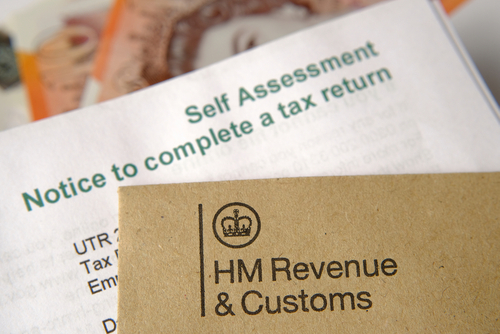A lot of people are scared of taxes. Mention the word and they might give you a blank look, or break out in a cold sweat. For the self-employed, however, it’s important to keep on top of the details or you could find yourself in trouble with HMRC.
That’s why, in the latest of our mythbusting series, we look at myths related to your tax returns, and give you the information you need to keep yourself right.
1. Only the self-employed have to complete self-assessment tax returns
For people who are salaried or are employees at a business, it’s easy to understand why you might think self-assessment tax returns have nothing to do with you.
After all, you don’t need to worry about your taxes, right? As long as your tax code is correct when you join your company, the correct amount of tax is taken from your paycheck automatically, leaving you to spend the rest of your wage as you see fit.
In reality, it isn’t quite as easy as that. There are several scenarios where people who aren’t self-employed may have to complete a self-assessment.
Maybe you have shares you’ve been selling and you need to pay Capital Gains Tax? Maybe you’ve earned more than £10,000 in savings for this year? Or maybe you have expenses from your job that you want to claim tax relief on.
That’s why it’s always worth checking whether you need to fill out a self-assessment – you can do so by using HMRC’s self-assessment checker tool.
2. You can’t be fined for filing a late tax return if you don’t owe any tax
While April is considered tax season in the UK (because that’s when the previous tax year ends and the next tax year begins) the deadline for filing your self-assessment tax return and paying what you owe is 31st January each year.
HMRC are a stickler for the rules and if you’re late with your self-assessment, you’ll face a penalty. There’s a £100 fine for anyone whose tax return is up to 3 months late. Any later, and you’ll face an even bigger fine.
Because there’s a hard deadline on self-assessment tax returns, many people assume the people who find themselves late with their tax returns do so because they can’t get the money in place. Why else would you file a tax return late?
In actual fact, the reason many people are late with their tax returns is because they don’t actually owe anything in taxes – meaning they assume they won’t be penalised for a late return.
That’s not true. If you’re self-employed and expected to file a self-assessment, you’ll be penalised for filing your tax return late, even if you don’t owe any money to HMRC.
3. You need an accountant to file a self-assessment tax return
A lot of people think taxes are complicated. There are loads of different tax codes. There are endless forms to fill out. There’s money involved, so that presumably means there’s counting involved too – and what if you make a mistake and cost yourself a fortune?
That’s why so many unemployed people hire an accountant. It’s not hard to see the appeal. The accountant takes care of your taxes for you, including making sure you’re in the right tax bracket and filing your self-assessment tax returns before the deadline.
If you can afford an accountant, then it can be a useful option – but that doesn’t mean it’s absolutely necessary. Filing tax returns is actually a lot easier than people think.
If your tax affairs are relatively simple (i.e. you work for yourself) there’s nothing you shouldn’t be able to handle. You can do the whole thing online, and HMRC even offers a handy self-assessment checklist to make sure you haven’t missed anything.
4. There is no way of getting out of a HMRC late fee
As previously mentioned, Her Majesty’s Revenue & Customs will apply late fees if you are late with your self assessment tax returns. The later you are, the bigger the fine you will face.
As a Government body, HMRC is not particularly well known for its flexibility, so making sure your tax affairs are in order and you are aware of each of the deadlines for your tax returns will pay off in the long-run.
That said, there are certain exceptions to the rules. HMRC operates a “reasonable excuse” policy when it comes to tax deadlines. That means if events outwith your control affect your ability to pay your taxes on time, and HMRC accepts your explanation as “reasonable”, you won’t be penalised.
Events that might qualify as a reasonable excuse include the death of a loved one, problems related to a disability, a serious illness, or events like fire, flood, or theft. You can read more about exemptions from late fees here.
5. HMRC will let you know if you have to file a tax return
A lot of people take a hands-off approach to their taxes. For people who are used to being salaried employees, tax issues more or less take care of themselves.
The only contact many people have with HMRC is if they send a letter through the door to say that they’ve overpaid their one their taxes (great news), or they still owe HMRC money (not so great).
For people who are self-employed, however, they don’t have the luxury of being hands-off with HMRC. Despite what many people believe, HMRC won’t let you know whether you owe money on your taxes – it’s up to you to keep on top of your tax affairs.
That means you need to find out whether you should be filling out a self-assessment tax return each year. If so, it’s on you to get in touch with your local tax office, kickstart the process, and make sure you meet your tax obligations before the deadline.









